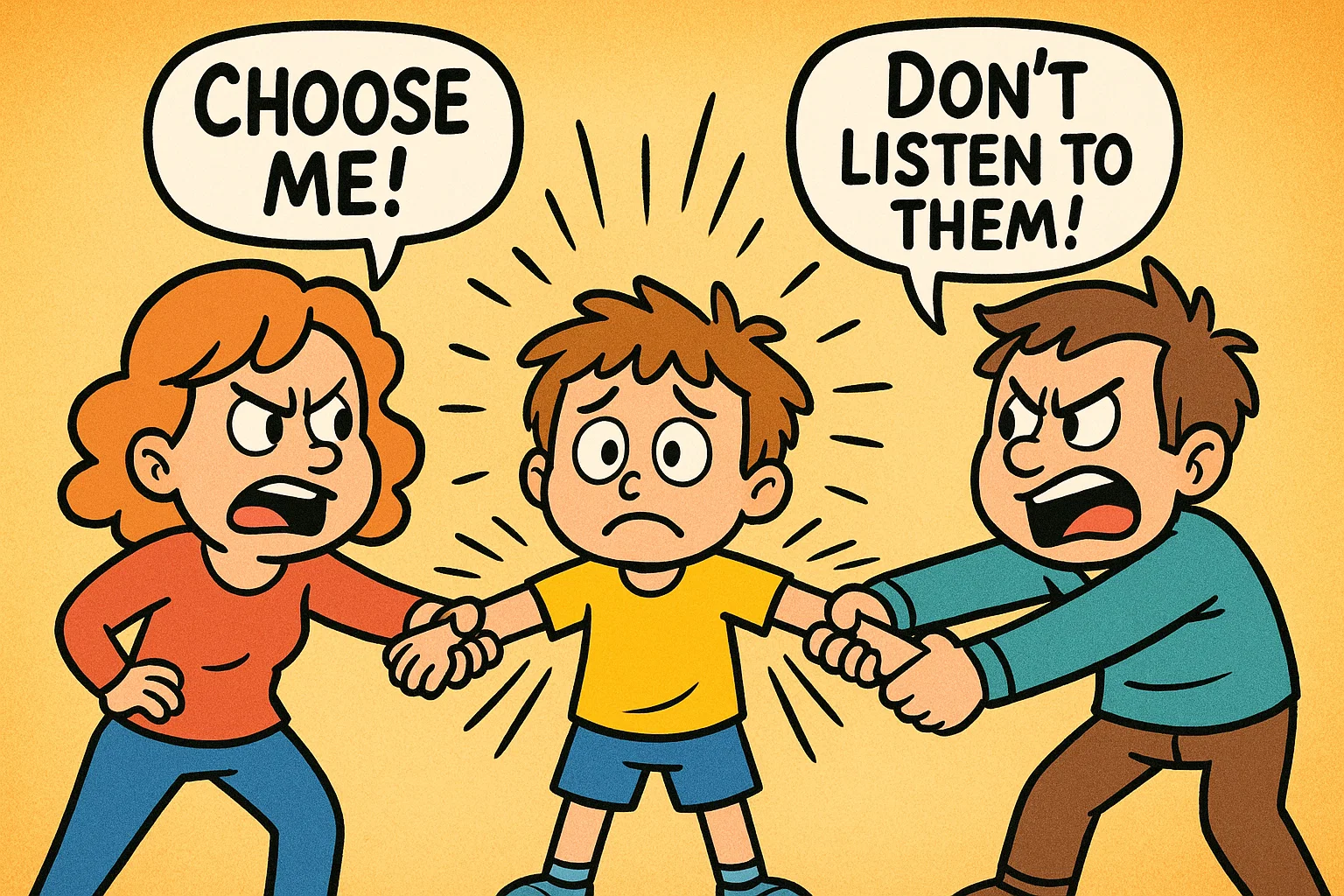Navigating a separation or divorce is incredibly challenging, especially when youngsters are involved. It’s a time of immense stress and change, and for some families, it can unfortunately become a battleground for a youngster’s loyalty. This is where parental alienation can rear its ugly head, a deeply painful and complex issue that can tear a family apart and inflict lasting damage on a child’s psyche. It isn’t just a simple case of a youngster being upset with one parent; it is a systematic campaign of denigration and emotional manipulation that can warp a youngster’s relationship with both of their caregivers and, in the long run, their ability to form healthy relationships in the future.
This guide is designed to help you understand what parental alienation is, recognize its signs, and explore the different ways to address and prevent it. We’ll delve into the subtle and overt behaviors of the alienating caregiver, as well as the confusing and often heartbreaking behaviors of the affected youngster. Our goal is to provide you with the knowledge and tools you need to identify this issue, understand its impact, and take steps to protect your youngster’s emotional well-being and their fundamental right to a relationship with both of their parents.
What is Parental Alienation
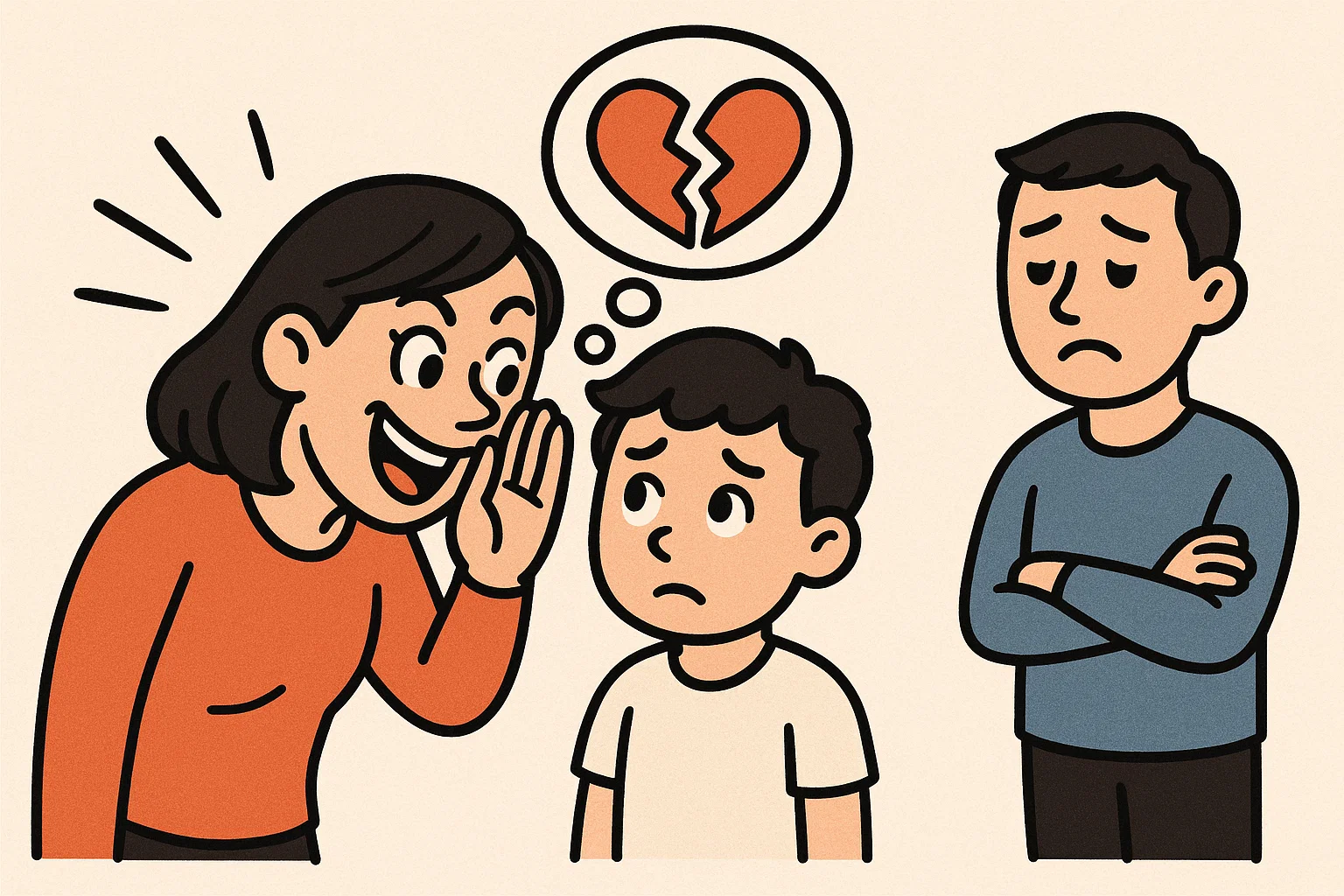
Parental alienation is a term used in psychology and family law to describe a form of emotional abuse where one caregiver actively and consciously or unconsciously seeks to turn a youngster against the other parent for no justifiable reason. This is not simply a youngster preferring one caregiver over another. Instead, it is a pattern of behavior that results in a youngster’s unjustifiable animosity toward a parent with whom they once had a loving, positive relationship. This phenomenon often arises in high-conflict family law matters, especially during divorce proceedings or child custody disputes.
While it is not yet officially recognized as a stand-alone mental health disorder in the Diagnostic and Statistical Manual of Mental Disorders (DSM-5), its principles are widely acknowledged by therapists, family lawyers, and family courts. The concept of parental alienation syndrome was first introduced by Richard Gardner in the 1980s. While some of his ideas have been debated, the core concept of an alienated youngster’s hostility toward a rejected parent remains a critical and widely discussed issue within mental health and legal communities. The UK’s Children Act 1989, for example, prioritizes the best interests of the child, and a court will often view parental alienation as being contrary to those interests. CAFCASS, the UK’s Children and Family Court Advisory and Support Service, has a specific framework for addressing cases of parental alienation, highlighting its seriousness.
Origins and Causes
Parental alienation typically emerges from complex and often painful family dynamics. The most common catalysts include:
- High-conflict separation or divorce: This is the most common setting for parental alienation. When caregivers are locked in a bitter dispute, they may use their offspring as a pawn to hurt the other parent or to gain an advantage in court.
- The alienating caregiver’s own unresolved issues: This individual may harbor deep-seated anger, resentment, or a sense of betrayal toward the other parent. They may also have their own personality disorders, such as a narcissistic or borderline personality disorder, which can make them prone to manipulating others to gain control.
- A desire for control: The alienating caregiver may feel a loss of control after a separation and attempt to regain it by controlling the youngster’s relationship with the targeted parent.
- Fear of being replaced: The alienating caregiver may fear that the youngster will grow closer to the other parent, especially if a new partner is introduced.
Impact on Children and Family
The impact of parental alienation is profound and far-reaching, affecting not just the youngsters and parents but also the extended family. A youngster who is experiencing this form of psychological abuse may struggle with:
- Emotional turmoil: The youngster is forced to choose between two people they love, which can lead to intense feelings of guilt, anxiety, and confusion. They may suppress their true feelings toward the rejected caregiver to avoid conflict with the alienating caregiver.
- Damaged self-esteem and identity: The youngster’s sense of self is often tied to the narrative of the alienating caregiver. They may internalize the idea that the targeted parent is “bad,” leading to a distorted view of their own identity and a feeling of being unworthy of love from that caregiver.
- Long-term relationship difficulties: As adults, children who come from a family with parental alienation may have trouble forming secure, trusting relationships. They may struggle with ambivalence and find it difficult to trust their own judgment about people, often replicating the “all good or all bad” thinking they learned in childhood.
Types of Parental Alienation
The intensity of parental alienation can vary significantly from case to case. Experts often categorize it into three levels to better understand its severity and guide appropriate intervention strategies.
Mild Alienation
In mild cases, the alienating parent may engage in subtle, often passive-aggressive alienating behaviours. The youngster may still maintain contact and a relationship with the other parent, but they may show signs of influence. They might occasionally criticize or show discomfort around the targeted parent, but they don’t fully reject them. For example, a youngster might say, “Mom said you’re always late,” but will still happily spend time with their father. The youngster’s affection for the rejected parent is not completely extinguished, and there is still a foundation to build on.
Moderate Alienation
This is a more concerning stage where the youngster’s hostility toward the rejected parent is more pronounced and consistent. They begin to actively resist contact, making excuses to avoid visits and clearly siding with one parent. This is where you might start seeing the child may begin to show significant negative behavior toward the targeted parent. They might show a lack of ambivalence, presenting a highly one-sided view of the family’s history. While they might still have fond memories of the rejected parent, they will deny or dismiss them when prompted.
Severe Alienation
At this stage, the youngster has become fully indoctrinated into the alienating caregiver’s narrative. They completely reject the targeted parent, often refusing all forms of contact, including phone calls, texts, and visits. Their relationship with the parent is almost completely severed. This level of alienation is a serious form of emotional child abuse, and it often involves a youngster making false accusations against the rejected parent. The youngster’s hostility is so deeply ingrained that it can be very difficult to reverse without intensive therapeutic and legal intervention.
Key Signs of Parental Alienation
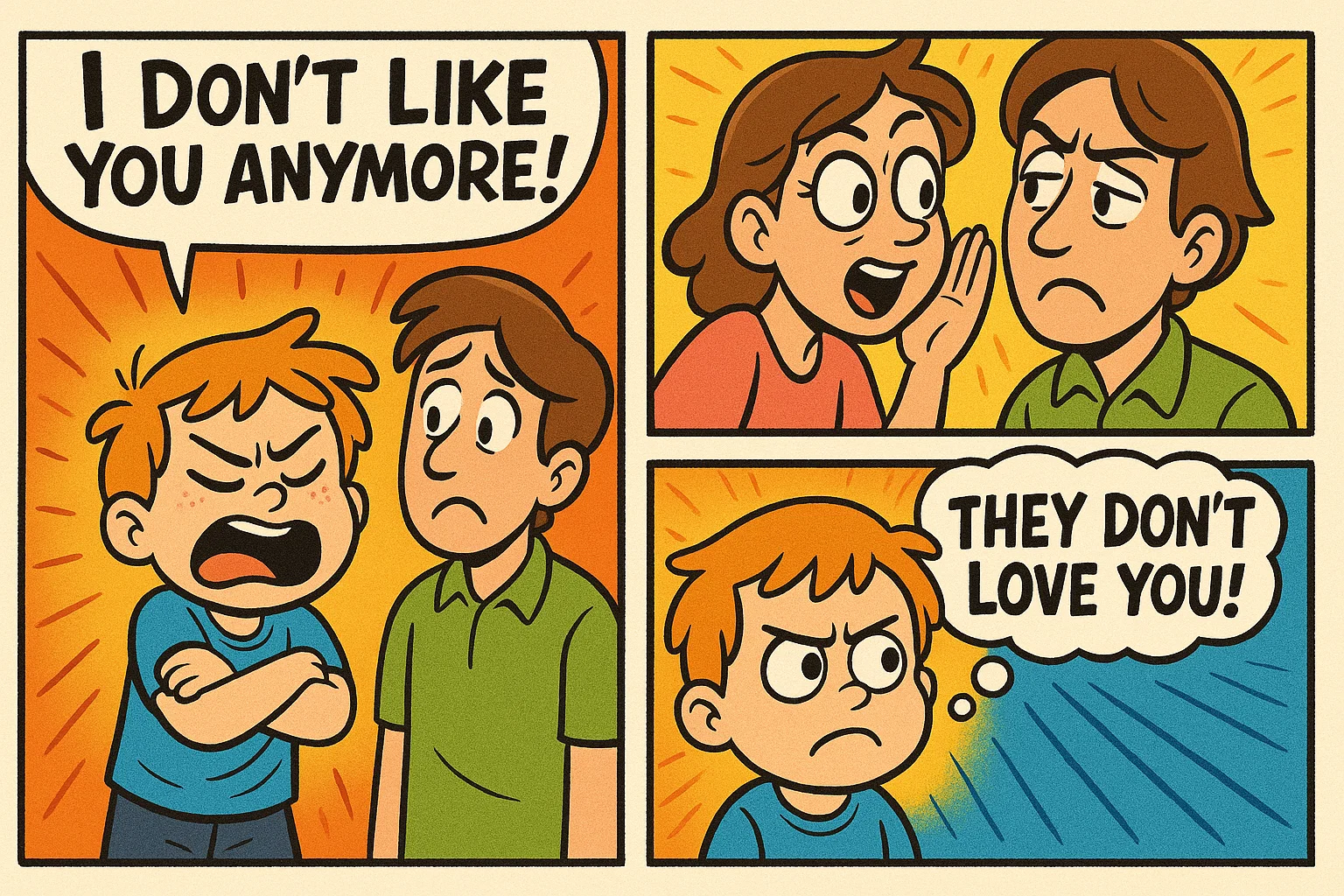
Identifying parental alienation can be difficult because the behaviors are often manipulative and subtle. However, there are a number of clear red flags to look for. These are not always proof of alienation, but they are a cause for serious concern. Below are 17 signs of parental alienation to help you understand the problem more clearly.
Signs in Child Behavior
A youngster who is being alienated will often exhibit a specific set of behaviors that are inconsistent with their past relationship with the rejected caregiver.
- Unjustified rejection of a parent: The youngster’s hostility and rejection are disproportionate to any actual wrongdoing by the rejected parent. They can’t provide a justifiable reason for their intense negative feelings.
- Lack of ambivalence: The youngster sees the alienating parent as entirely good and the rejected parent as entirely bad. There is no middle ground, which is unnatural for a youngster’s complex feelings about their guardians. The youngster forgets all the positive past experiences they had with the rejected parent.
- Borrowed scenarios or adult language when criticizing a parent: The youngster uses language or phrases that they would not normally use, often parroting the words of the alienating caregiver. For example, a youngster might say, “You are mentally unstable” instead of “You make me mad.”
- Absence of guilt when being hostile: The alienated child shows no feelings of guilt or regret for their cruel and rejecting behavior toward the targeted parent. They are often cold and indifferent.
- Sudden refusal to visit or communicate with one parent: There is an abrupt change in the youngster’s behavior, where they suddenly and completely refuse to have contact with the child‘s other caregiver.
- Hostility extended to extended family: The youngster’s rejection isn’t limited to the rejected parent; it often extends to that parent’s family members, such as grandparents, aunts, uncles, and cousins, with whom they once had a positive relationship.
Signs in Alienating Parent Behavior
The tactics used by an alienating parent can be either obvious or subtle, but they all share the goal of damaging the youngster’s relationship with the other parent.
- Badmouthing the other parent: This is one of the most common signs. The alienating parent constantly makes negative comments about the other parent to the youngster. This includes name-calling, making fun of them, or blaming them for all of the family’s problems.
- Limiting contact or interfering with visitation: The alienating parent will actively try to prevent the youngster from seeing the targeted parent. They may “forget” to bring the youngster to a scheduled visit, not answer the phone when the rejected parent calls, or claim the youngster doesn’t want to go.
- Withholding important information: The alienating parent may intentionally fail to inform the other parent about important school events, doctor’s appointments, or extracurricular activities, excluding them from the youngster’s life.
- Encouraging the youngster to call the other parent by their first name: This is a tactic used to de-legitimize the caregiver’s role in the youngster’s life and create emotional distance.
- Sharing inappropriate details or confiding in the youngster: The alienating parent uses the youngster as an emotional confidant, sharing details of the separation, legal battles, or their negative feelings about the other parent. This places an adult burden on the youngster and forces them to take sides.
- Telling the youngster the other parent is dangerous or doesn’t love them: This is one of the most damaging tactics, as it instills fear and mistrust in the youngster’s mind. The alienating parent may feel they are “protecting” the youngster, but they are actually engaging in a form of psychological abuse.
- Pressuring the youngster to choose sides: The alienating parent may explicitly or implicitly force the youngster to align with them, often using guilt trips or ultimatums.
- Using pets, gifts, or rewards to control loyalty: The alienating parent may buy the youngster expensive gifts or a pet to “win” their affection and loyalty, creating a transactional relationship that undermines the natural bond with the rejected caregiver.
- Changing names, clothes, or personal effects: The alienating parent might change the youngster’s last name, give away gifts from the rejected parent, or even change their style of clothing to make them more like the alienating caregiver and less like the rejected parent.
- Creating a secret alliance: The alienating parent fosters a “we against them” mentality, encouraging the youngster to lie or keep secrets from the rejected parent.
- False accusations: The alienating parent may make false accusations of abuse, neglect, or other wrongdoing against the other parent to sway the child and legal system against them. This is a very serious and damaging form of alienation.
Psychological and Emotional Effects
The effects of parental alienation are devastating, leaving deep emotional scars on everyone involved.
Emotional Consequences for Children
The impact on children is particularly severe. They are caught in a loyalty bind, forced to reject a caregiver they love to please another. This conflict can lead to:
- Anxiety and depression: The constant stress of the situation can lead to mental health problems, which may persist into adulthood.
- Loss of identity: A youngster’s identity is shaped by both caregivers. When one is completely rejected, the youngster loses a part of their own identity.
- Trust issues: The youngster learns that love is conditional and can be taken away. This can make it difficult for them to form trusting, healthy relationships later in life.
- Low self-esteem: The youngster may internalize the alienating caregiver’s negative view of the targeted parent, and if they feel they are like that caregiver, it can damage their self-worth.
Consequences for the Targeted Parent
The targeted parent is a victim of psychological manipulation and emotional abuse. They experience:
- Intense grief and loss: The caregiver is essentially mourning the loss of a relationship with their living youngster. This can lead to depression, anxiety, and a feeling of profound helplessness.
- Legal struggles: Fighting allegations of parental alienation can be an emotionally and financially draining process. It involves fighting for the right to be a caregiver, which can be an incredibly painful and stressful experience.
Long-Term Consequences
The long-term consequences of severe parental alienation can be tragic. Children with parental alienation may become adults who are unable to form healthy attachments. They may also be at a higher risk for substance abuse, mental health issues, and repeating the cycle of alienation with their own children. The victims of parental alienation are often left with deep emotional scars that require extensive therapy and support to heal.
How to Address Parental Alienation
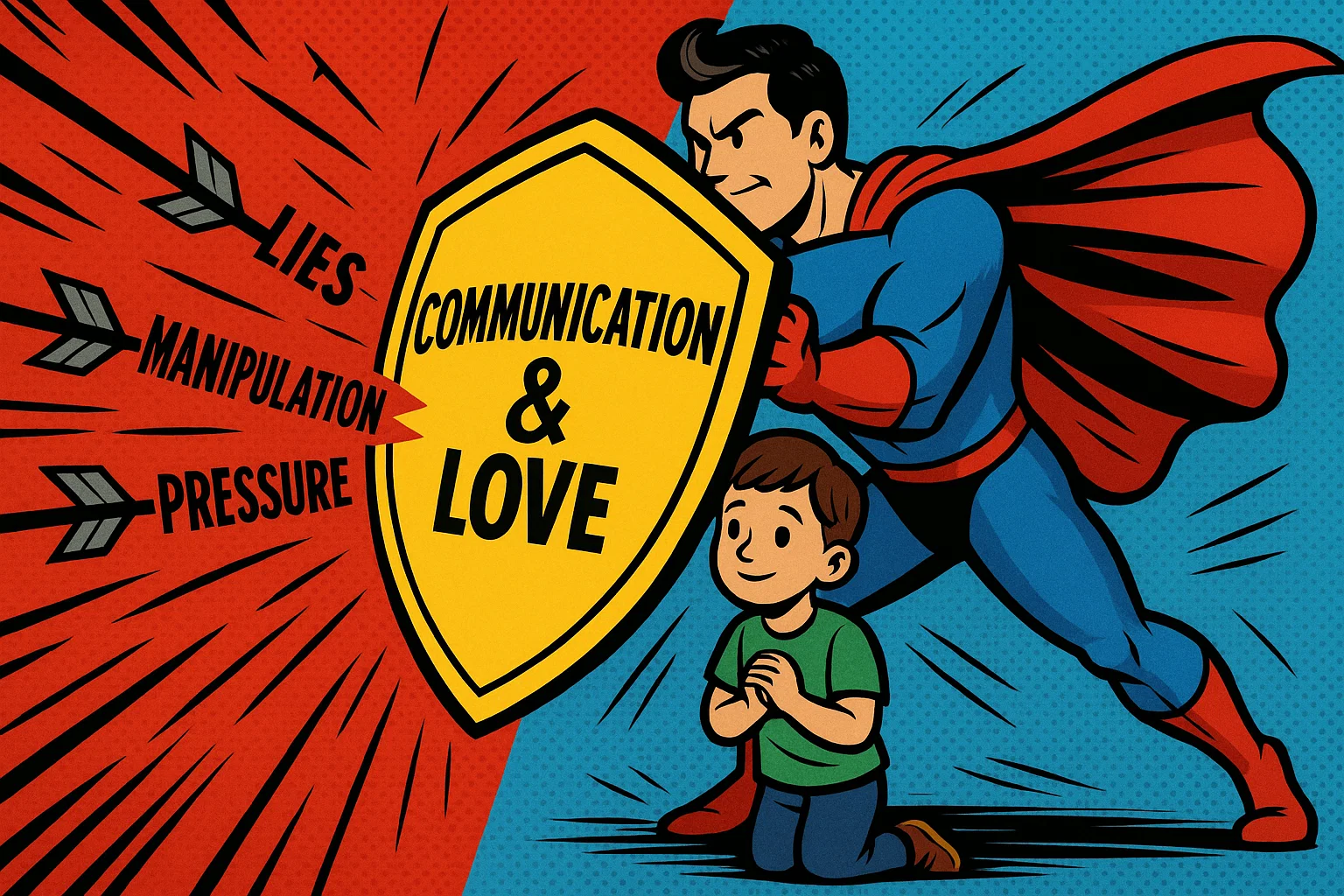
Addressing parental alienation requires a multi-faceted approach, involving communication, documentation, legal action, and professional support.
Communication Strategies with Your Child
If you believe your child is experiencing alienation, it’s crucial to handle communication with care.
- Stay calm and loving: No matter what your youngster says or does, remain calm and reassuring.
- Avoid badmouthing the other parent: This is the most important rule. Don’t fall into the same trap as the alienating caregiver.
- Reassure them of your love: Let them know that your love is unconditional and that you are there for them no matter what.
- Don’t force them to choose: Don’t ask them to choose between you and the other parent. Let them know it’s okay to love both of you.
Documenting Signs of Alienation
Documentation is key, especially in a legal setting. Keep detailed records of every interaction and communication.
- Keep a journal: Record dates, times, and specifics of any alienating behaviour from the other parent or your youngster.
- Save texts and emails: Any communication that shows a pattern of manipulation or interference should be saved.
- Note missed visitations: Keep a log of every time the alienating parent has prevented or interfered with a scheduled visitation.
Legal Options and Custody Solutions
In many cases, legal action is necessary to protect the youngster’s best interests.
- Consult a family lawyer: Find a family lawyer who has experience with cases of parental alienation.
- Seek court intervention: A family court can order therapy, a change in custody, or a child arrangements order that specifies contact with the child.
- Request a custody evaluation: A neutral third party, often a psychologist or social worker, can assess the family dynamic and make recommendations to the court.
Professional Support
Therapy is crucial for both the youngster and the targeted parent.
- Therapy for the youngster: A therapist can help the youngster process their feelings and navigate the complex emotions they are experiencing. This is particularly important for children with parental alienation to help them heal.
- Support groups: These groups offer a safe space for targeted parents to share their experiences and receive support from others who understand what they are going through.
Self-Care for Targeted Parents
This process requires patience and long-term commitment. Taking care of your mental and emotional health is vital.
- Build a support network: Lean on friends, family, and professionals for support.
- Practice stress management: Exercise, meditation, and hobbies can help you cope with the immense stress of the situation.
- Don’t give up: Remember that your relationship with your youngster is worth fighting for.
Preventing Parental Alienation
The best approach is to prevent parental alienation from happening in the first place.
Promoting Healthy Co-Parenting
Even after a separation, parents must work together for the sake of the youngster.
- Cooperative parenting: Learn to communicate respectfully with the other parent, even if you disagree.
- Conflict resolution: Address disagreements directly and away from the youngster.
- Focus on the youngster: Always prioritize the youngster’s well-being over your own feelings about the other parent.
Early Intervention Strategies
The sooner you address the issue, the better.
- Mediation: A neutral mediator can help parents resolve conflicts without involving the youngsters.
- Therapy: Mental health professionals can help parents navigate their emotions and learn healthier ways of co-parenting.
- Legal advice: A family lawyer can provide guidance on how to protect your relationship with the child and address any concerning parental behaviours before they escalate.
Education and Awareness
Knowledge is power.
- Understand the signs: Knowing what to look for can help you identify a problem early on.
- Educate others: Talk to friends, family, and teachers about parental alienation so they can support you and the youngster.
When to Seek Professional Help
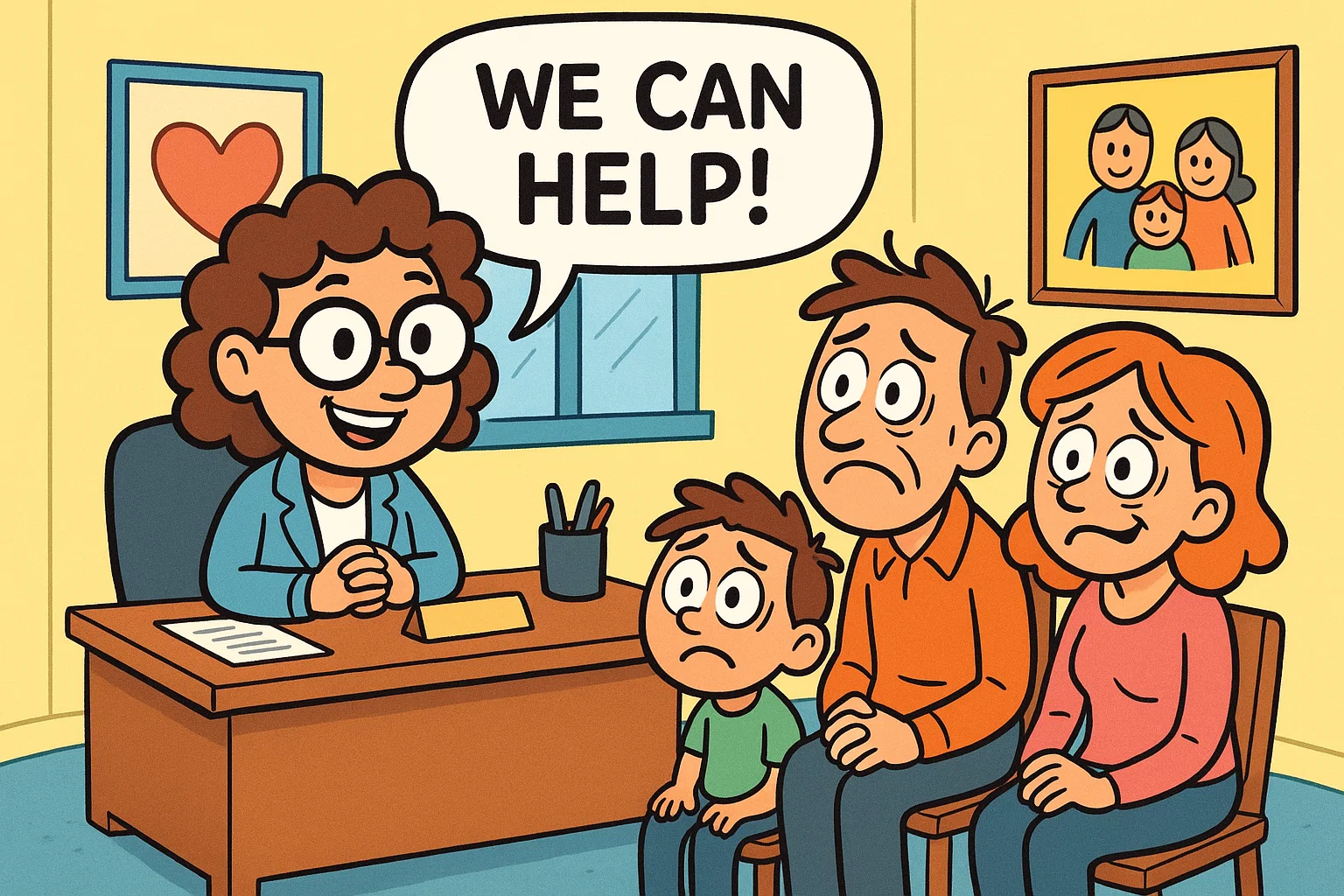
Recognizing the signs is the first step, but knowing when to act is critical.
Indicators that Require Urgent Action
If you notice any of these signs, it’s time to seek professional help immediately:
- The youngster completely refuses all contact with the child‘s other parent.
- The youngster shows a deep-seated fear or intense hostility toward you for no reason.
- The youngster repeats false accusations that you know are not true.
- The youngster is actively attempting to sever the relationship with the other parent.
Role of Therapists and Family Counselors
A therapist can act as a neutral third party to help rebuild trust and communication. They can work with the youngster to address their conflicting emotions and help them understand that it’s okay to love both of their caregivers.
Finding Legal Specialists in Parental Alienation Cases
It is vital to find a family lawyer with specific experience in issues of parental alienation. They will know how to present a case to the court, gather necessary evidence, and advocate for the best interests of the child. While some may not agree with the term parental alienation, a good lawyer will understand the dynamics and know how to present the case effectively.Parental alienation is a serious form of emotional child abuse that can have devastating long-term effects. By understanding what it is, recognizing the signs, and taking proactive steps to address it, you can help protect the child and ensure they maintain a loving and healthy relationship with both parents. The journey is difficult, but your youngster’s well-being is worth the fight.


